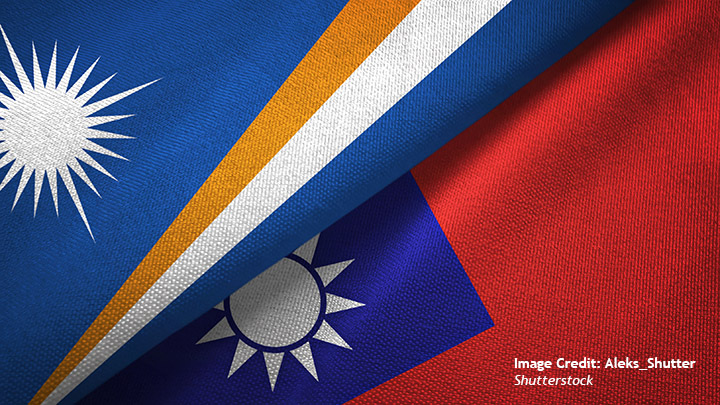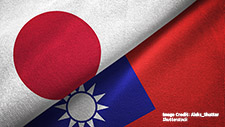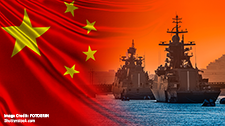Taiwan-Marshall Islands Relations: Against the Tide

Larissa Stünkel and Julian Tucker
Introduction
The Republic of the Marshall Islands (RMI) is among a handful of countries to still recognize the Republic of China (ROC)*, one of four in the South Pacific. Two of its regional neighbors, the Solomon Islands and Kiribati, severed ties with the ROC in favor of the People’s Republic of China (PRC) just days apart in September 2019, raising questions over whether the Marshall Islands might be tempted to follow suit. This was especially acute as the PRC and ROC have been stepping up their tug of war in the region. While the Marshallese government was signing a cultural cooperation agreement with the Taiwanese Council of Indigenous Peoples, local business leaders and the mayor of Rongelap atoll were seeking to establish a “Special Administrative Zone” to attract investments from mainland China.
Spread out over a vast territory the Marshall Islands consist of over 1,100 islands and islets in the South Pacific. While the country’s land area is miniscule, covering only about 180 square kilometers, its sea space covers 1,9 million square kilometers, an area roughly the same size as Mongolia. Its population is comparatively small, just under 60,000 people, but like many South Pacific countries the Marshall Islands is hard-pressed to provide essential services and employment, meaning that many islanders move abroad for work, education, and health care.
Geographically the islands form part of the “Second Island Chain,” a contiguous area in which the United States wields major political and strategic influence which China views as designed to contain its ability to project power into the Pacific Ocean.
The loss of two South Pacific allies dealt a significant blow to Taipei’s foreign relations, at a time when its international space is shrinking and confrontation with the PRC is palpable. The Nitijela, the Marshall Islands’ parliament, swiftly released a statement reaffirming ties with Taipei in response to their neighbors diplomatic realignment. Even as Taiwanese diplomats vacated their posts in the Solomon Islands and Kiribati, the discourse focused on Mainland inducements to winning over Taiwan’s remaining allies. Much analysis has centered on fears of Beijing’s growing footprint in the Pacific, and heightened tension with the U.S. Less noted upon, however, has been Majuro’s continuing support for Taipei, despite the alignments taking place in the region.
Taiwan’s relationship with the Marshall Islands is multifaceted and touches upon many areas. Unlike many of Taipei’s remaining diplomatic allies, Majuro’s recognition of the ROC does not trace back to the Cold War, but is a product of the late 1990’s. In fact, the RMI broke relations with the PRC to pursue a relationship with Taiwan. Nuclear waste management, climate change policy, development assistance and trade, as well as Austronesian cultural ties have underpinned bilateral relations even as government priorities in both countries have changed. Tensions between the United States and the PRC have entered into the diplomatic equation again as has global health policy in the wake of the COVID-19 pandemic, although these more recent developments tend to overshadow the foundations upon which the relations are built.
The Marshall Islands’ continuing relationship with Taiwan deserves closer scrutiny. If the pressure and incentives from Beijing was sufficient to induce the Solomon Islands and Kiribati to aligning away from Taipei, a similar approach to the Marshall Islands appears not to have borne fruit. Although great power politics play a role in explaining the Majuro’s steadfastness, this frame of analysis neglects several of the qualitative considerations, such as the RMI’s status-seeking efforts, which often trump material considerations.
* The ROC will intermittently be referred to as Taiwan throughout this issue brief. To date China refuses to acknowledge Taiwan as a state and sees it as a renegade province that should be incorporated at any cost. For the purpose of this publication and reflective of the de facto situation Taiwan will be seen as a separate political entity. Most states adhere to the ‘One China policy’ which precludes diplomatic relations of a third state with both PRC and RoC. At present only 15 states continue a diplomatic relations with Taipei.
Of Foreign Powers & Radiation
The Marshall Islands’ history has long been shaped by foreign powers, despite its remote geography. Germany annexed the islands in 1885, before Japan took over control of the islands in 1914. The Second World War brought more foreign intervention and disruption, with the islands featuring in the Pacific Theater. Japanese rule formally ended with the establishment of the Trust Territory of the Pacific Islands (TTPI) in 1947 by the United States with the intention to promote “international peace and security”.
The TTPI consisted of territories for which Japan’s administrative rights were revoked by UN Security Council Resolution 21. The original intention was to prevent another attack similar to Pearl Harbor, however, it would also later prove valuable for Washington’s Cold War strategy. Despite the arbitrary nature of their territorial composition, the islands were now regarded as a “strategic area” for which the U.S. was given full administrative rights. Although the TTPI and the U.S. financial aid underpinning it were intended to lead each territory towards independence, Washington reserved the right to build bases, station personnel, and recruit local volunteers. In the Marshall Islands, the U.S. would use the Kwajalein atoll as a ballistic missile defense site.
Economic, educational, and social assistance quickly took a back seat as the U.S. rolled out the Pacific Proving Grounds (PPG) plan to use the region as test sites for nuclear weapons. Until the mid-1950s, the Marshallese atolls of Bikini and Enewatok were the main staging areas for 67 nuclear bomb tests. Radioactive fallout and forced resettlement of islanders have been a thorn in the side of U.S.-Marshallese relations ever since. Radiation-related diseases, such as thyroid cancer, are highly prevalent and the need to address long-term health issues rates highly on the priority list of Marshallese politicians, as does managing remaining radioactive waste. Perceived American indifference towards the islanders would feature prominently in in the later Marshallese sovereignty movement.
Independence: The Mouse That Roared
Despite vastly different characteristics, the Marshall Islands and Taiwan’s trajectories began to converge in the late 1980s. The inauguration of U.S.-PRC relations in 1979 meant Taipei could no longer be certain of Washington’s unwavering support. In addition, Taiwanese domestic politics were undergoing a crucial transformation. The rise of Lee Teng-hui, a comparatively moderate and reform-minded Kuomintang (KMT) politician, allowed the vestiges of the authoritarian rule of Chiang Kai-shek to fade, signaling a gradual shift towards liberalization and multi-party politics.
Meanwhile, the Marshall Islands were wrestling to reconcile demands for independence with calls for justice and fair compensation for U.S. “nuclear colonialism”. Majuro‘s withdrawal from the Congress of Micronesia in 1973 was a form of protest of Washington‘s failure to deliver on fiscal commitments. The Congress had originally been set up in 1965 and was designed to ease the transition to independence within the TTPI, and the decision to expedite the process by referendum amounted to a rejection of American policy in the South Pacific. At the same time, the process of independence revealed a rift within Marshallese society. While many believed the idea of self-governance as an ideal to finally shake off the shackles of foreign domination, many feared that a Marshallese solo effort would debilitate its long-term bargaining power vis-à-vis Washington.
While Washington recognized Marshallese independence in 1979, tensions within Marshallese society allowed American policy makers to remain influential. By offering the status of free association, economic and military assistance, and fixed compensation payments the U.S. sought to counter the set-back for its regional policy.
Amata Kabua, a staunch proponent of Marshallese independence, ultimately rose to power in the process. Kabua’s conciliatory approach to negotiations with Washington had drawn harsh criticism domestically. The atolls of Bikini, Enewatok, and Kwajalein formed a coalition – confusingly lead by Kabua’s cousin Imata Kabua – condemning the push to enter a Compact of Free Association (COFA) with the U.S. Hard-pressed to shore up the national economy, the COFA’s terms appealed to the incumbent government of Amata Kabua as a way to offset debt and to deliver upon his campaign promise to improve livelihoods nationwide. In an attempt to placate Kwajalein landowners and other critics such as those affected by the nuclear weapons tests, the Marshallese negotiators allowed the proceedings in Washington to stall in order to regain control over U.S. concessions. Ultimately Kabua managed to push through the Compact deal after a plebiscite vote in 1986.
While rescinding all-out independence, the COFA provided a vital economic boost for the Marshall Islands. The U.S. was able to retain control over its military post on the Kwajalein atoll and the Kabua government was now able to look for new sources of income to improve living standards should the Compact not be renewed after 2001. Now freed of restrictions inherent in the TTPI, Majuro could pursue its priority of diversifying its economic base away from Washington‘s defense strategy.
One illustrative example of Amata Kabua’s efforts to cement his political position through controversial international projects was an effort to offer areas already damaged by nuclear testing as nuclear storage facilities to Asian nations as well as the U.S. Even if this plan was never acted upon, it raised alarm those Marshallese who had first-hand experience with U.S. nuclear testing and disruption of customary land rights.
Amata Kabua’s sudden passing in 1996 sent shock waves through the political establishment in Majuro and again exposed deep rifts of perceived stability. An ensuing power struggle resulted in Imata Kabua, Amata’s cousin and erstwhile rival, taking on the presidency. Still hard-pressed economically and looking to reconcile the Kwajalein grievances as elections loomed large, Imata Kabua took the unexpected decision to open talks with Taipei in 1998. This first step came at a time of political tension: many Marshallese constituencies were alienated when Imata staged a governmental walk-out over gambling legislation, and an unprecedented health care workers‘ strike rocked Marshallese politics. Taiwan’s overtures and offers to help coincided with these troubles and proved a window of opportunity for Imata. The struggling president initially sought to maintain relations with both Taipei and Beijing but was quickly reprimanded by the latter with a swift removal of all diplomatic staff and the closure of the Chinese embassy.
The diplomatic switch was a result of internal struggles which led to a re-evaluation of Majuro’s foreign policy strategy. With Cold War rationales fading, maneuvering became substantially easier as it allowed the Marshall Islands to diversify its economic base. Apart from shoring up the government with material gains, the realignment towards Taipei allowed Majuro to synchronize its efforts with those of Taipei within the international community.
Compact(ing) Recognition
Already surfacing prior to the diplomatic switch, but especially after Imata Kabua endorsed Taiwan in 1998, several developments paved the way for ties to consolidate. Cross-Strait tensions intensified in the late 1990s while an electoral watershed moment for Taiwan was taking place and Majuro faced renewal of the COFA. While Cross-Strait relations seriously deteriorated, ushering in not only a period of military tension but also redoubled diplomatic pressure, the RMI was in a position to benefit from the stand-off. The prominence accorded to Majuro by the Chen Shui-bian administration helped buoy RMI aspirations. Meanwhile, the renewed U.S. interest in the Pacific afforded the RMI a stronger negotiation position towards COFA.
Having run a risk in endorsing Taipei, Imata Kabua suffered an electoral defeat propelling the newly established United Democratic Party (UDP) to the fore. Stabilizing the country’s tumultuous politics and addressing perennial needs of the population kept the UDP busy and the new government refrained from unnecessarily straining the RMI’s still fragile international relations.
Marshallese material concerns were a factor in the early years of the bilateral relationship with Taipei. However, others played a similarly important role. Then RMI foreign minister Philip Muller emphasized that Taipei would become a partner in development. Taiwan pledged to finance infrastructure projects and to contribute to the Marshallese trust fund, potentially buffering Majuro’s economy should COFA have been discontinued. Not only was the UDP able to secure long-term funding financial support from Taipei, it also set a precedent of the RMI being treated as partner on equal footing.
At the same time, Majuro was renegotiating the renewal of the COFA with Washington. Conversation still dominated by nuclear fall-out compensation and a quasi-colonial history. Particularly the U.S. position, that the RMI needed to return unspent funding, proved a sticking point that would contribute to a growing rift between the RMI and the U.S. Taiwan’s approach of lavish material provisions and amicable overtures increasingly contrasted with a perceived U.S. high-handedness. For Taipei the relationship with the RMI appeared to be a priority whereas Marshallese concerns formed part of a side-show from the perspective of Washington.
Frequent visits have since reinforced their relationship, with “sovereignty” featuring prominently for Taipei and Majuro, albeit for different reasons. In this period of the history of the RMI, the development of Taiwan’s niche-oriented diplomacy is neatly illustrated. Since its inception in 1999, the Taiwan’s agricultural awareness program has been hailed as a frontrunner in supporting Marshallese development and joints projects to boost food security, public health, and educational opportunities.
Pushing the Pace for Cordial Diplomacy
When in 2016 Tsai Ing-wen was elected ROC president, her political stance might have unsettled the Majuro-Taipei connection. Tsai’s electoral victory marked the end of an unofficial diplomatic truce with Beijing. The PRC viewed her election as a subversion of the “One China” principle, which necessitated a renewed push to diminish Taiwan’s international space by luring diplomatic allies into Beijing’s fold. Moreover, the ambitious Belt and Road Initiative (BRI) has provided ideal conditions for winning over new partner states, especially those dependent on external trade. Washington, meanwhile, underwent significant changes after the Trump administration came to power in 2016. Washington’s foreign policy is now often impacted by rash decisions and ensuing volatility, most noticeable in the trade war between the U.S. and the PRC. And yet, despite such strong international political fluidity, Majuro has found ways to capitalize on Taipei’s goal of maintaining diplomatic relations while achieving Marshallese priorities, despite the more tense strategic landscape.
An especially potent aspect of seemingly even stronger ties hinges upon the soft power of cultural diplomacy. A cultural-linguistic facet of the relationship, which harkens back to Taiwan’s aboriginal peoples ties to the Austronesian cultural-linguistic family, has been particularly pronounced since Tsai took office. Not only did her inauguration ceremony include performances by aboriginal groups, she also struck an unusually apologetic tone, highlighting the hardships and discrimination that these groups had suffered at the hands of previous administrations in Taiwanese history. This eventually culminated in a distinctly personal public apology by Tsai to all indigenous groups just a few months later. Besides striking a chord with the domestic indigenous population on issues of fair treatment and inclusion, the notion of a common cultural heritage simultaneously began to tinge Taipei’s diplomatic relations with the Marshall Islands.
In early 2019, the Marshall Islands and the Taiwanese Council of Indigenous Peoples signed an agreement aimed at “strengthening Austronesian exchanges”. The first of its kind, it is set to foster cultural exchanges between the two nations beyond the political realm. It most notably prioritizes the conservation of indigenous languages, traditional skills, and customs. It further touches upon climate change cooperation, a major topic in South Pacific politics and long a sticking point with the United States. For a nation facing the disastrous consequences of rising sea levels, a threat to Marshallese livelihoods and cultural practices, cooperating with Taipei may likely represent a glimmer of hope in the Marshallese long bid to have its precarious situation recognized internationally.
For Taiwan, such a diplomatic gambit serves as the ideal springboard to leverage its idea of a distinct Taiwanese identity vis-a-vis the Mainland’s “One China” principle. By elevating the idea of a common indigenous heritage, the Tsai administration can play a card in the game of contesting sovereignty that Beijing does not have in its repertoire. For the Marshall Islands, the Taiwanese message signals understanding at a time when its own demands are increasingly met with defiance, in particular from its closest partner, the U.S. Despite the Marshall Islands’ UN mission already punching above its weight on climate change matters, the decision by the Trump administration to pull out of the Paris Agreement on climate change mitigation dealt a considerable blow to Marshallese efforts and only serves to complicate their bilateral relations.
Prospects for Realignment?
In both the Solomon Islands and Kiribati, the diplomatic realignment coincided with national elections. The transitions of power are critical periods for Taiwan as a hard-fought election campaigns can feature promises of re-evaluating the status quo of exclusion from Chinese markets. In the run up to the close Marshallese general election in November 2019, Taipei sought to reinforce ties with Majuro. In October then RMI President Hilde Heine led a delegation to Taipei, which was received by Tsai. The trip included signing memoranda of understanding to extend cooperation on resource and infrastructure development, boost tourist exchanges, as well as a major trade deal and a sister city agreement between New Taipei City and Jaluit Atoll.
Heine had been known as a staunch supporter of the relationship with Taipei and a vociferous critic of Beijing’s efforts to incorporate the South Pacific in the greater BRI. But ruling out cooperation with China earned her criticism at home and her government only narrowly survived a vote of non-confidence in late 2018. These earlier struggles had raised concerns that Heine’s defeat by Amata Kabua’s son, David Kabua, might lead to an abrupt end to the Marshallese-Taiwanese relationship.
Yet the RMI’s latest President Kabua has so far shown himself committed to continuing the ties between the two countries. His inauguration in January was attended by Deputy Foreign Minister Hsu Szu-chien, and his inaugural speech stressed his incoming administration’s commitment not only to partnering with Taiwan, but also with the United States and Japan, Taipei’s most prominent supporters. One consideration for the newly elected RMI president has surely been the COVID-19 pandemic, which can be especially devastating for small, isolated communities, and has coincided with an outbreak of measles and dengue fever in the RMI. Not only was Taiwan among the first to ring the alarm over the growing pandemic, but officials immediately moved to supply their partners abroad with material and informational support. Majuro moved swiftly to ban direct travel to China and issue travel warnings to protect its citizens.
As diplomatic and geopolitical rivalries have grafted themselves onto a public health crisis, Kabua has been supportive of Taiwan, issuing an official letter of thanks to the Tsai administration for medical supplies and expressing admiration for Taipei’s response to the outbreak. Taipei has even gone a step further, taking prescient steps to boost their South Pacific partner’s food security, which in the far flung islands will likely become a major issue in the near future as the pandemic and economic recession drive up food prices. Perhaps unsurprisingly, Majuro has also called on the World Health Organization (WHO) to allow for Taiwanese participation in its annual meeting, along with Tokyo and Washington, a position which Beijing views as unacceptable.
The Taipei-Majuro Connection
It is important to note that the relationship between the Marshall Islands and Taiwan is dynamic rather than static. The conditions faced by both countries are vastly different today than they were twenty years ago, although they have given shape to the edifice upon which bilateral relations are built. Taiwan has been able to bring its small country diplomacy to bear in building relationship despite de facto exclusion from the international community. Meanwhile, the Marshall Islands have been able to reap the benefits of joint development and capacity building projects. As pressure on Taipei mounts the government will need to find ways to sustain its partnership, whereas Majuro will have to increasingly contend with climate change related challenges and strategic competition in its neighborhood.
In the future, the priorities for both Majuro and Taipei will continue to shift, as successive administrations work to meet the needs of their people, but the foundation is unlikely to change dramatically. The U.S. and China will remain diplomatic heavy weights with policy agendas that impact both Taiwan and the RMI. Yet, it would be a mistake to view the relationship between Taiwan and Marshall Islands as merely an expression of growing geopolitical rivalry between great powers, as it would gloss over both nations’ own leverage to maintain diplomatic relations.
Related Publications
-
The Political Split at the Heart of Taiwan’s Struggle against Foreign Disinformation
Taiwan’s struggle against foreign disinformation and concerns about China’s impact on its 2024 election has received much international attention recently. This issue brief examines the domestic and international politics behind […]
-
Taiwan and the Diplomatic Squeeze
In mid-March 2023, the self-governing island of Taiwan lost another one of its already few diplomatic allies. Announcing the severing of diplomatic ties between Taiwan and Honduras on Twitter on March 15, […]
-
Taiwan: Tokyo’s New Ally?
In December 2022, the back-to-back visits by senior Japanese lawmakers, Koichi Hagiuda, Japan’s ruling Liberal Democratic Party (LDP) Policy Research Council chairman, and Hiroshige Seko, the upper house secretary general […]
-
Safeguarding the Global Chip Supply: Lessons from PRC’s Technology Acquisition Tactics in Taiwan
Taiwan’s technological advantage, especially in the semiconductor sector, serves as a key factor for deterring a Chinese invasion. However, there are documented cases of the PRC using multiple strategies to […]
-
Challenging Western Views: Understanding Power and Stability in East Asia; An Interview with DAVID C. KANG
Dr. David C. Kang is Maria Crutcher Professor of International Relations at the University of Southern California. A leading expert in East Asian security, international relations, and political economy, Dr. […]




